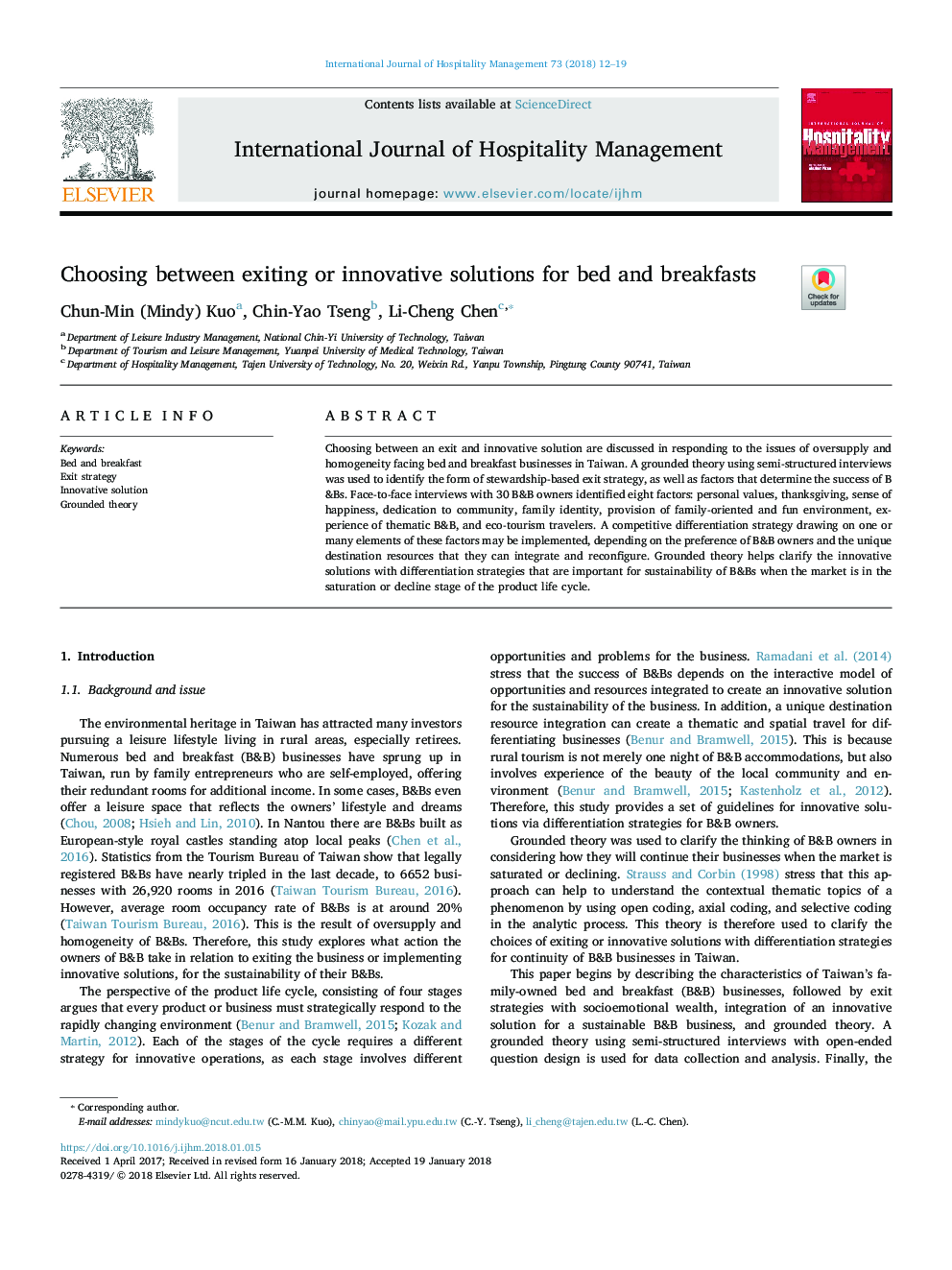| Article ID | Journal | Published Year | Pages | File Type |
|---|---|---|---|---|
| 7418992 | International Journal of Hospitality Management | 2018 | 8 Pages |
Abstract
Choosing between an exit and innovative solution are discussed in responding to the issues of oversupply and homogeneity facing bed and breakfast businesses in Taiwan. A grounded theory using semi-structured interviews was used to identify the form of stewardship-based exit strategy, as well as factors that determine the success of B&Bs. Face-to-face interviews with 30 B&B owners identified eight factors: personal values, thanksgiving, sense of happiness, dedication to community, family identity, provision of family-oriented and fun environment, experience of thematic B&B, and eco-tourism travelers. A competitive differentiation strategy drawing on one or many elements of these factors may be implemented, depending on the preference of B&B owners and the unique destination resources that they can integrate and reconfigure. Grounded theory helps clarify the innovative solutions with differentiation strategies that are important for sustainability of B&Bs when the market is in the saturation or decline stage of the product life cycle.
Related Topics
Social Sciences and Humanities
Business, Management and Accounting
Strategy and Management
Authors
Chun-Min (Mindy) Kuo, Chin-Yao Tseng, Li-Cheng Chen,
